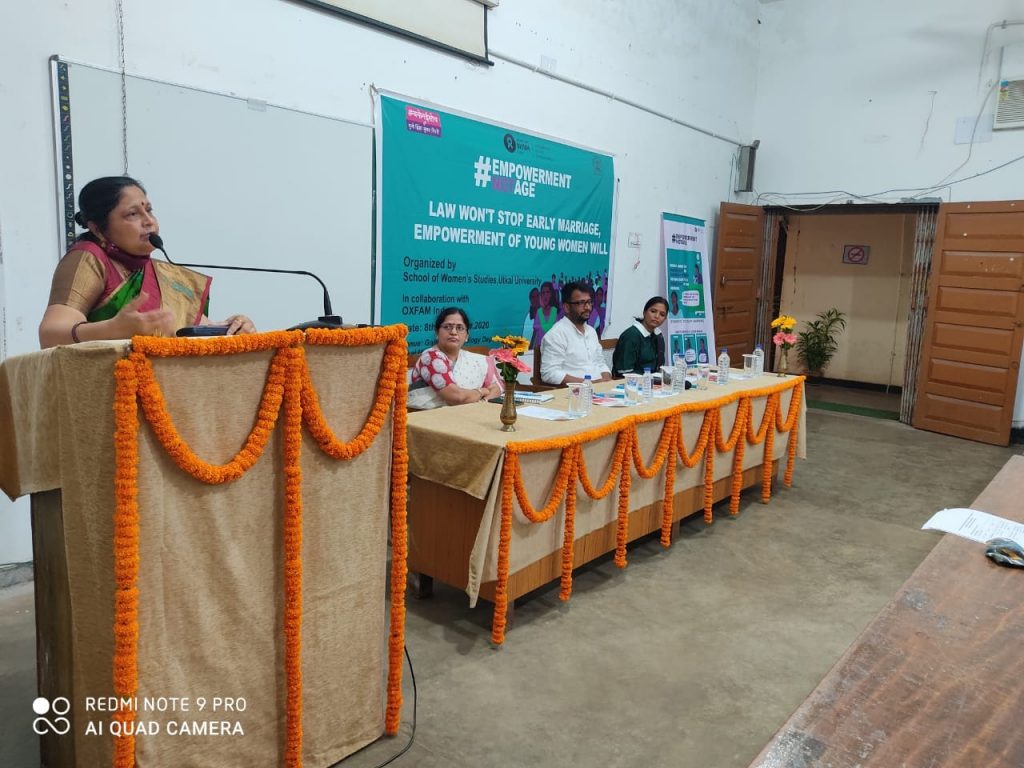Bhubaneswar: School of Women Studies, Utkal University in collaboration with Oxfam India organised a youth festival “Empowerment Not Age” under its campaign “Bano Nahi Soch” at here Tuesday.
“The festival aims to sensitise young people about the issues of child marriage and empowerment of young girls. It aims to create conversations and help young people voice against old social systems that promote gender inequality and oppress women and girls” said Akshaya Kumar Biswal, Regional Manager Oxfam India.
‘Bano Nahi Soch’ is a campaign by Oxfam India to end violence against women and girls. The campaign calls on men and women to help change social practices that discriminate against women and lead to violence, Biswal added.
“Recently the central government informed that it is considering raising the minimum legal age of marriage for young women from 18 to 21, ostensibly to delay the age of motherhood, improve nutritional level among young
mothers and decrease maternal mortality rates, he further said.
The Empowerment Not Age campaign takes a hard look at ground realities and evidence-backed research in order to examine whether a legal intervention is the best route to delay the age of
marriage in young women.
The evidence clearly demonstrates that a focus on improving young women’s lives through better education, employment opportunities, safety from violence, and increased agency all directly contribute to delaying marriage. We know that if women have the opportunity to complete their
education and earn money, they are less likely to be viewed as financial burdens that need to be married off at an early age.
Rukmini Panda, Programme officer, Gender Justice, Oxfam India, said “Educated girls have more power to negotiate their marriages with
their families.We also know that early marriage in India is the result of several deep-rooted social norms, such
as the belief that early marriage will save a woman from sexual violence, assure a lower dowry, prevent elopement and will protect her honour. While there is no evidence to back these claims, these deep-rooted norms are unlikely to shift
because of a legal amendment”.
“Consequently, the families of 56% of women in India who will
likely get married under the age of 21 as per existing evidence, most of whom belong to poor and marginalized communities, will be turned into criminals overnight with the introduction of this law”, she added
We demands that the government should focus on creating
positive incentives for young women and their families to delay marriage, instead of criminalising them through this law she said.
Utkal University’s first Women Vice Chancellor Sabita Acharya said ” We will make sure that the varsity and all it’s affiliated colleges provide violence-free and discrimination free environment to the students. “
